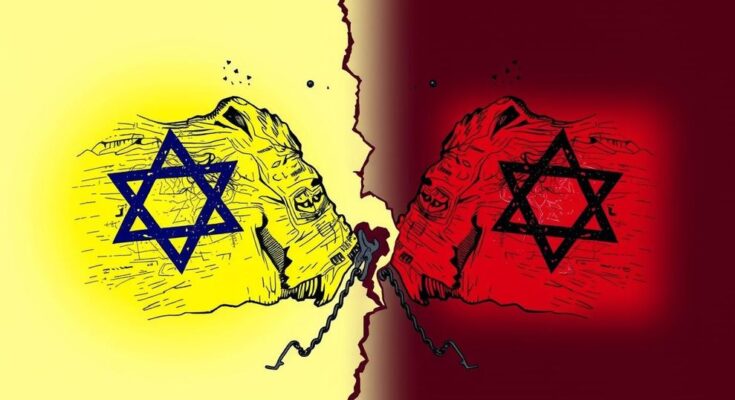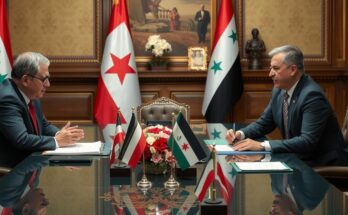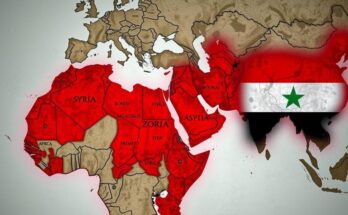A ceasefire between Israel and Hezbollah has begun in Lebanon after over a year of fighting. The truce, announced by Israel, France, and the US, aims for a permanent cessation of hostilities. Despite continued attacks before the ceasefire, the agreement outlines a 60-day withdrawal plan for both forces in a bid to restore stability. The conflict has resulted in significant casualties and displacement, emphasizing the dire humanitarian impact and geopolitical complexities involved.
A ceasefire between Israel and Hezbollah has commenced in Lebanon following over a year of intense conflict. The ceasefire took effect at 04:00 local time on Wednesday, marking a temporary halt to fighting that lasted nearly 14 months. The agreement was announced jointly by Israel, France, and the United States, with President Joe Biden characterizing it as a potential pathway to a permanent cessation of hostilities. Despite the ceasefire, both sides recorded attacks until moments before the truce began, indicating sustained tension.
The ceasefire was initiated just hours after Israel ordered evacuations in parts of Beirut and conducted military strikes. In turn, Hezbollah launched drone attacks against Israel prior to the ceasefire. The Israel Defense Forces (IDF) promptly urged southern Lebanese residents to avoid areas designated for evacuation. Many were seen fleeing in the immediate aftermath of the ceasefire, a sign of ongoing unease within the region.
The conflict escalated significantly in late September when Israel initiated heavy airstrikes and a limited ground incursion in response to persistent attacks by Hezbollah. The war has resulted in devastating casualties, with reports indicating over 3,823 fatalities in Lebanon. According to the ceasefire agreement, Israel will gradually pull its forces from southern Lebanon over a two-month period, while Hezbollah is expected to withdraw its fighters and equipment from the region south of the Litani River, an area designated following the last major conflict in 2006.
Lebanon’s Prime Minister, Najib Mikati, has endorsed the ceasefire as a critical step towards restoring stability, asking for Israel’s full compliance with the agreement. Meanwhile, Israeli Prime Minister Benjamin Netanyahu emphasized Israel’s readiness to take action should Hezbollah violate the terms, underscoring the delicate nature of peace in the region. In a recent poll, public opinion in Israel showed a divided stance on the ceasefire, reflecting a society still grappling with the ramifications of prolonged conflict.
In the broader context, the ongoing tensions in Lebanon and Gaza are interconnected, as Netanyahu remarked that the cessation of hostilities in Lebanon would pressure Hamas, which has been reliant on Hezbollah for support during the conflict. The ceasefire has the potential to create opportunities for renewed diplomatic efforts regarding Gaza, though US officials have made it clear that no American troops will be deployed to enforce the ceasefire.
As the situation remains fluid, the humanitarian impact in Lebanon is stark, with significant losses and displacement resulting from the violence, further complicating the path towards lasting peace.
The ceasefire between Israel and Hezbollah highlights a significant moment in Middle Eastern geopolitics, particularly in the context of prolonged conflicts exacerbated by regional alliances and proxy dynamics. The Israel-Hezbollah conflict has been intensified by the war in Gaza, igniting memories of past clashes such as the one in 2006. The involvement of various international players, including the US and France, underscores the global implications of this ceasefire. Additionally, the humanitarian crises arising from the conflict reflect the need for a more sustainable resolution to prevent future escalations.
In conclusion, the ceasefire between Israel and Hezbollah represents a critical juncture in ongoing hostilities in the region, offering a temporary respite from violence that has resulted in severe casualties and displacement in Lebanon. While the agreement facilitates a phased withdrawal of forces and aims to restore stability, heightened tensions and potential violations cast uncertainty on its longevity. It remains crucial for international cooperation to foster compliance and support humanitarian needs in the aftermath of such conflict.
Original Source: www.bbc.com




